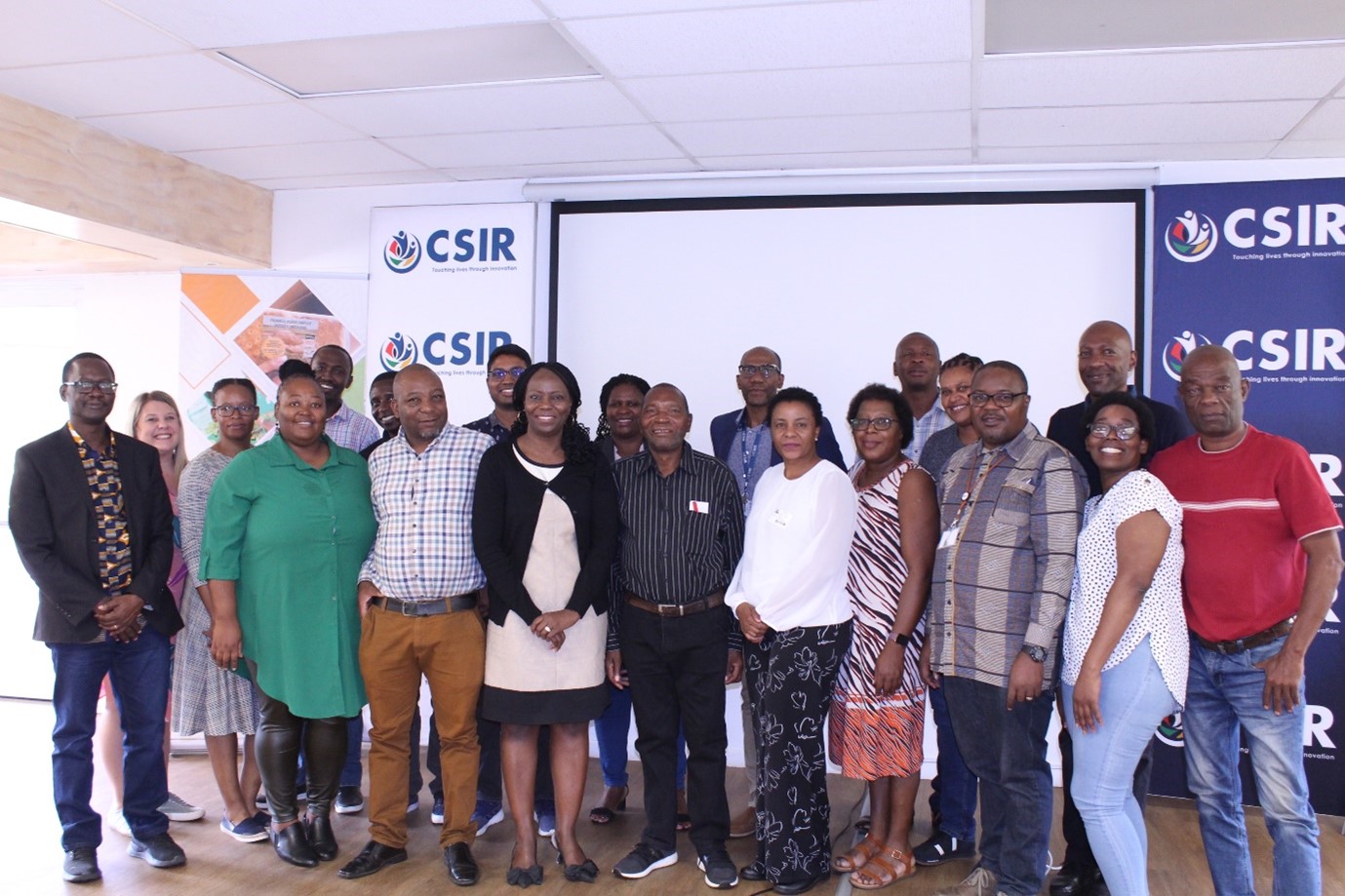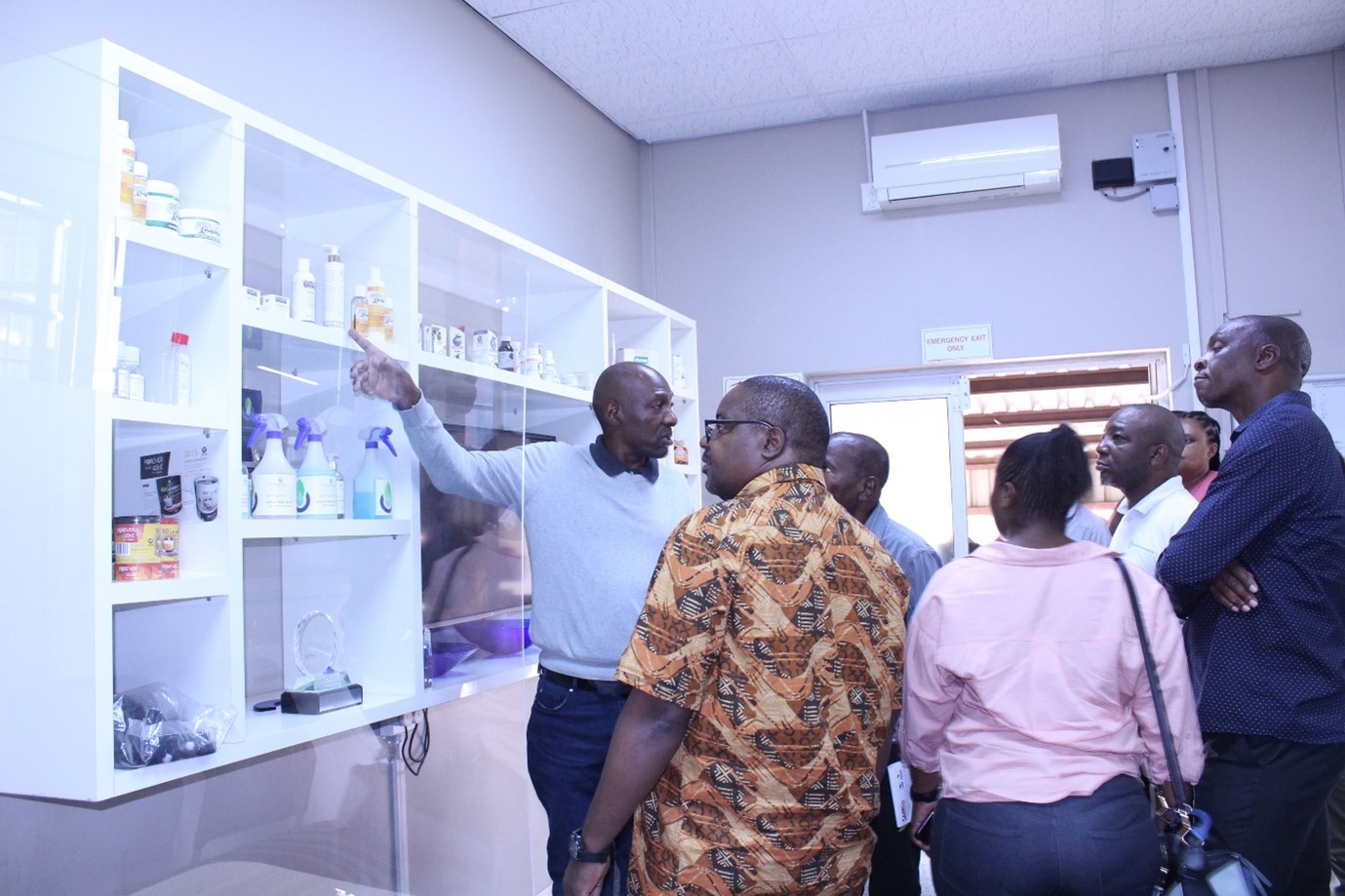The African Union Development Agency – New Partnership for Africa’s Development (AUDA – NEPAD) Southern African Network for Biosciences (SANBio) hosted a grant induction workshop at the CSIR from 24 – 28 April 2023 to discuss the key deliverables and outcomes on the Support to Industrialisation and Productive Sectors (SIPS) programme.
Twenty delegates from the Southern African Development Community (SADC), Harare Institute of Technology (HIT) and the University of Eswatini (UNESWA) converged to share information on the project titled: Application of Indigenous Knowledge for the development and production of remedies to manage HIV/AIDS in Zimbabwe and Eswatini.
The 12-month project was awarded a grant worth $600 000 by SADC, in partnership with the European Union under the SIPS programme and is currently led by SANBio and the CSIR in collaboration with HIT and UNESWA.
The project aims to develop safe, efficacious and quality remedies based on traditional medicines and indigenous knowledge to manage the human immunodeficiency virus (HIV) and acquired immunodeficiency syndrome (Aids).
According to the World Health Organization (WHO), there are currently 25.6 million people living with HIV globally and the African region continues to be the most affected. WHO further estimates that around 80% of the population living in the African region rely on traditional forms of medicine to meet their healthcare needs.
The SIPS project is set to benefit indigenous knowledge holders, patients living with HIV/Aids, especially in rural areas, farmers, private companies and researchers, as well as research institutions. This initiative supports the implementation of local legislation, policies and frameworks on indigenous knowledge systems (IKS) and access, as well as benefit sharing of plant genetic resources in Eswatini and Zimbabwe, in-line with the requirements of the SADC Access and Benefit Sharing Guidelines and the Nagoya Protocol.
SANBio Network Manager, Prof. Ereck Chakauya, who is also the principal investigator of the project said that the project poses a unique opportunity to industrialise traditional remedies from Africa’s rich indigenous knowledge that has been researched and tested over many years by traditional healers who also benefit from the innovation.
Anneline Morgan, a senior programme officer specialising in science, technology and innovation from the Department of Industrial Development and Trade in the SADC Secretariat in Botswana had it on record that SADC has never awarded a grant in the area of research and innovation.
“It is historic that the CSIR was awarded a grant directly from SADC in industrialisation – in fact, it is a major development. We look forward to getting the best outcomes from the project. This project falls under the anti-retroviral (ARV) value chain of SADC*,” she said.
Supporting Anneline’s sentiments, CSIR Divisional Group Executive: Advanced Chemistry and Life Sciences, Dr Rachel Chikwamba, said, “In the area of IKS, the CSIR has participated for the longest time, for which we can go to our facilities to see our work. We have capabilities to work with plants, communities and owners of indigenous knowledge to identify plants that are supposed to be of certain activities,” she said.
The visit was concluded with a tour to the CSIR NextGen Health cluster facilities, a supercritical laboratory, as well as the Biomanufacturing Industry Development Centre, where the CSIR showcased products that were developed in partnership with small, medium and micro enterprises.
In her closing remarks, Rachel said, “The CSIR takes its regional role seriously because our communities are continuous. Being able to participate with SADC partners is an extremely important aspect of who we are and what we believe our role is.”

* ARV drugs, Covid-19 relevant medical pharmaceutical products and leather regional value chains. These value chains were given preference due to their potential for job creation.

Contact Person: Pro. Ereck Chakauya, @email,